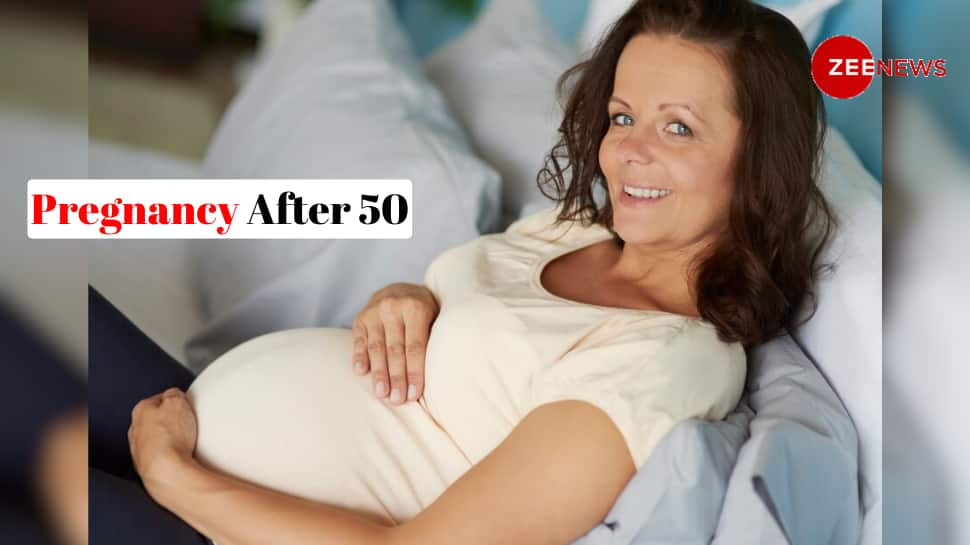[ad_1]
During pregnancy, a woman’s body undergoes significant changes to support the growth of new life. Understanding the fertility and conception journey is essential for those planning to start a family. In this article, we explore the complexities of pregnancy and fertility, offering insight and tips for those embarking on this transformative journey.
Although pregnancy after the age of 50 is extremely rare, it is possible with the latest reproductive technology, especially IVF. Unlike women, male fertility is generally not directly affected by age-related decline. Hence, male fertility is not affected and remains stable, thus ensuring successful conception.
Can women get pregnant after menopause?
Dr. Shweta Gupta, Senior Consultant, Obs & Gynae, Bloom Clinic, and IVF specialist for women, says, “I have worked as a gynecologist for several years, and I am fully aware of the complications and potential health risks associated with pregnancy. However, thanks to assisted reproductive techniques , the choice is no longer limited to women trying to conceive later in life.”
“IVF is a technology that helps women in their 50s get pregnant by collecting eggs from the woman’s body and fertilizing them outside the body, and then these fertilized embryos are dropped into the uterus.”
“One of the most frequently asked questions as an IVF specialist is whether pregnancy after menopause at age 50 is really possible,” adds Dr. Hetal Parekh, Consultant Fertility Physician at The Center for Human Reproduction, Dr LH Hiranandani Hospital, Powai, Mumbai.
“Although this is indeed a very rare event, it still wins as a major outcome because assisted reproductive technology, especially in vitro fertilization (IVF), has made it possible. IVF becomes an essential part of the pregnancy process for women of this age.”
What role does IVF play in planning a pregnancy after 50?
“For women who are planning to conceive at this late stage, there are many options to choose from, for example, using donor eggs from younger women or using previously preserved embryos from other younger women to achieve a healthy and error-free pregnancy. ., ” highlights Dr Shweta.
Dr. Hetal further emphasizes, “Over the years, the number of oocytes in a woman’s ovaries will decrease, and as a result, pregnancy naturally becomes difficult to achieve. IVF produces multiple eggs through ovarian stimulation and then produces infertile eggs both biological age- removes some of the associated barriers. Sperm from healthy men are exposed in a laboratory for fertilization and implantation of eggs. This can reduce the effects of poor quality and low numbers of eggs as the mother ages, which is essential.”
Women can get pregnant after menopause scientifically
IVF in science involves ovulation stimulation, egg retrieval, fertilization, embryo culture and embryo implantation. Dr. Shewta comments, “The science behind IVF involves stimulating the ovaries to bring about multiple eggs, retrieving the eggs through a minimally invasive procedure, fertilizing them with sperm in a laboratory where fertilization takes place, and transferring these embryos into embryos. A woman’s womb.”
“With options such as using donor eggs from younger and healthier women, women who are considering becoming pregnant at age 50 no longer have to put pregnancy off the agenda of her life. Donor eggs increase the chances of further growth and implantation. Reduced risk of chromosomal abnormalities and improper fetal development. ,” concluded Dr. Hetal.
[ad_2]

